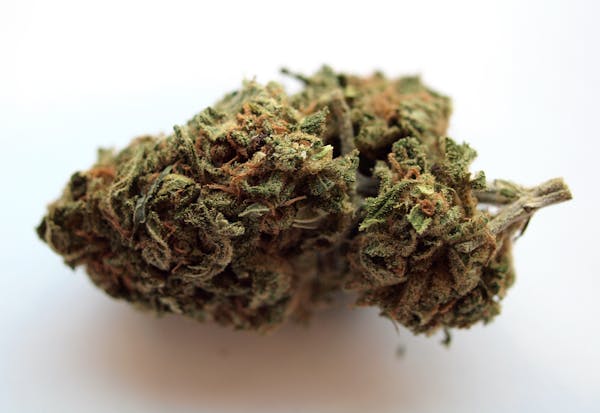THCa Flower and Its Role in Non-Psychoactive Wellness Products
The world of cannabis is vast and varied, with numerous compounds offering a range of benefits. Among these, THCa (tetrahydrocannabinolic acid) has gained attention for its potential in non-psychoactive wellness products. Unlike its more famous counterpart, THC, THCa from indacloud.co does not produce a high, making it an attractive option for those seeking therapeutic benefits without psychoactive effects.
Understanding THCa: The Basics
THCa is a cannabinoid found in raw and live cannabis plants. It is the precursor to THC, the compound responsible for the psychoactive effects of cannabis. When cannabis is heated through smoking, vaping, or cooking, THCa undergoes decarboxylation, converting into THC. In its raw form, THCa remains non-psychoactive, offering a different set of benefits.
Potential Health Benefits of THCa
Research into THCa is still in its early stages, but preliminary studies and anecdotal evidence suggest several potential health benefits:
- Anti-inflammatory Properties: THCa may help reduce inflammation, making it a potential option for those with conditions like arthritis.
- Neuroprotective Effects: Some studies indicate that THCa might protect brain cells, which could be beneficial for neurodegenerative diseases.
- Anti-emetic Benefits: THCa has shown promise in reducing nausea and vomiting, particularly in patients undergoing chemotherapy.
- Appetite Stimulation: Like THC, THCa may help stimulate appetite, which can be beneficial for individuals with eating disorders or undergoing treatments that reduce appetite.
THCa in Non-Psychoactive Wellness Products
The non-psychoactive nature of THCa makes it an appealing ingredient in wellness products. These products aim to harness the therapeutic benefits of cannabis without the high, catering to a broader audience.
Types of THCa Wellness Products
Several products incorporate THCa, each offering unique benefits:
- Raw Cannabis Juices: Juicing raw cannabis leaves and flowers preserves THCa, allowing consumers to ingest it directly.
- Topicals: Creams and balms infused with THCa can be applied to the skin, targeting localized pain and inflammation.
- Tinctures: These liquid extracts can be taken sublingually, providing a convenient way to consume THCa.
- Capsules: For those who prefer a more traditional method, THCa capsules offer a precise dosage without the need for preparation.
Case Studies and Consumer Experiences
Several case studies and consumer testimonials highlight the potential of THCa in wellness products:
- A study conducted by a California-based research group found that patients with arthritis reported reduced pain and improved mobility after using THCa-infused topicals.
- In a survey of cancer patients, many reported decreased nausea and increased appetite when incorporating THCa tinctures into their regimen.
- Individuals with neurodegenerative conditions have shared anecdotal evidence of improved cognitive function and reduced symptoms when using THCa products.
The Science Behind THCa
Understanding the science of THCa is key to appreciating its potential benefits. THCa interacts with the body’s endocannabinoid system, a complex network of receptors that regulate various physiological processes. Unlike THC, THCa does not bind directly to CB1 receptors in the brain, which is why it does not produce psychoactive effects.
Research and Development
Ongoing research aims to uncover more about THCa’s mechanisms and potential applications. Scientists are exploring its role in inflammation, neuroprotection, and other areas, hoping to validate anecdotal claims with empirical evidence.
Challenges and Considerations
Despite its potential, THCa faces several challenges in the wellness market:
- Regulatory Hurdles: The legal status of cannabis and its derivatives varies widely, affecting the availability and research of THCa products.
- Lack of Standardization: The cannabis industry lacks standardized testing and labeling, making it difficult for consumers to know the exact THCa content in products.
- Limited Research: While promising, research on THCa is still limited, necessitating further studies to fully understand its benefits and risks.
The Future of THCa in Wellness
The future of THCa in wellness products looks promising. As research progresses and regulations evolve, more consumers may have access to these non-psychoactive options. The growing interest in natural and holistic health solutions further supports the potential expansion of THCa products in the market.
Consumer Awareness and Education
Educating consumers about THCa and its benefits is crucial for its acceptance and integration into wellness routines. As awareness grows, so does the demand for transparent and reliable information about these products.
Conclusion
THCa offers a unique opportunity in the world of cannabis wellness products. Its non-psychoactive nature, combined with potential therapeutic benefits, makes it an attractive option for those seeking natural health solutions. While challenges remain, ongoing research and consumer interest suggest a bright future for THCa in the wellness industry. As more is learned about this intriguing compound, its role in promoting health and well-being will likely continue to expand.
